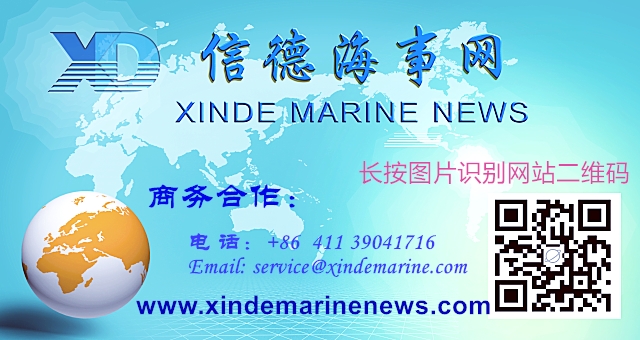The International Chamber of Commerce (“ICC”) has announced the publication of Incoterms 2020. This is the first update to Incoterms since they were last revised in 2010. The new rules become effective from 1 January 2020.
国际商会(“ICC”)正式公布了2020年版本的《国际贸易术语解释通则》。这是现行《国际贸易术语解释通则》自2010年生效以来进行的第一次修订。新修订的《国际贸易术语解释通则》将自2020年1月1日起生效。
Incoterms detail the obligations of the parties as well as the allocation of risk and cost in a trade contracted on three-letter trade terms (such as CIF and FOB). Incoterms are distinct from the meaning of the same three-letter trade terms at common law, and Incoterms will only apply if they are incorporated into the contract (usually by reference).
《国际贸易术语解释通则》对采用国际贸易术语(如“CIF”和“FOB”)订立的合同中各方主体的义务、风险和费用成本的承担进行了详细地解释。值得注意的是《国际贸易术语解释通则》中对国际贸易术语的解释和普通法下的解释有所不同,只有明确约定适用《国际贸易术语解释通则》的情况下,《国际贸易术语解释通则》中的贸易术语才会适用。
The revisions to the rules have been produced by the ICC Drafting Group, which was made up of eight members from Australia, China, EU member states, Turkey, andthe USA. Incoterms 2020 contain six significant changes from Incoterms 2010:
此次公布的《国际贸易术语解释通则》由ICC起草小组进行修订,该起草小组的八名成员分别来自中国、美国、欧盟成员国、澳大利亚和土耳其。与2010版的《国际贸易术语解释通则》相比,新修订的版本主要在以下六个方面进行了改动,具体而言:
1.The FCA rule now contains an additional element relating to bills of lading. Under this option, the buyer and seller agree that the buyer’s carrier will issue an on-board bill of lading to the seller after loading, which the seller will then tender to the buyer (likely through the banking chain). A problem with the old FCA rule was that it ended before the loading of the goods, which prevented the seller from obtaining an on-board bill of lading. However, bills of lading are generally required by banks under letters of credit and therefore the FCA rule was revised to take account of this market reality.
修订后的《国际贸易术语解释通则》中FCA术语下就提单问题引入了新的附加机制。根据该新引入的附加选项,买方和卖方同意买方指定的承运人在装货后将向卖方签发已装船提单,然后再由卖方向买方做出交单(可能通过银行链)。现行的FCA术语中存在的一个主要问题是该术语的效力在货物装船前就已经随货交承运人而截止,这就导致卖方无法获得已装船提单。但是在一般情况下,已装船提单是银行在信用证项下的常见单据要求,因此对FCA规则的修订充分考虑到这一市场上的实际情况。
2.Costs are now consistently listed in A9 (seller’s obligations) and B9 (buyer’s obligations), providing a “one-stop list of costs” for each rule. This new consolidated costs section appears in addition to the allocation of costunder the relevant obligation. For example, in an FOB sale, the costs involved in obtaining the delivery/transport document appear in both A6/B6 and A9/B9.
各个贸易术语项下买卖双方的费用承担在A9(卖方承担)和B9(买方承担)中详细载明,该部分为每一个贸易术语都提供了“一站式费用清单”。也就是说除了在具体规定有关义务的条款中对承担该义务产生的费用成本进行分配以外,还新加入将买方卖方各自承担的费用成本一并汇总的部分。例如,在FOB贸易术语项下,取得交付或运输相关单据产生的成本除在说明该项义务的A6/B6部分载明外,在汇总费用承担的A9/B9部分也有载明。
3.The level of minimum insurance in CIF and CIP terms has diverged. CIF terms continue to require the seller to obtain cargo insurance complying with Clauses (C) of the LMA/IUA Institute Cargo Clauses. However, in CIP trades the level of minimum insurance has been increased to that complying with Clauses (A) of the Institute Cargo Clauses (meaning “allrisks” cover, subject to exclusions).
CIF和CIP术语中的最低保险范围的规定也有所不同。 CIF术语继续要求卖方购买符合LMA/IUA《协会货物保险条款》(C)条款要求的货物保险。但是,在适用CIP术语的贸易中,最低保险范围已经提高到《协会货物保险条款》(A)条款的要求(即“一切险”,不包括除外责任)。
4.Provision has been made for the seller or buyer to employ their own means of transportation rather than employing a third party carrier, as was assumed in the Incoterms 2010. The changes are reflected in the FCA, DAP, DPU and DDP rules.
当采用FCA、DAP、DPU和DPP术语进行贸易时,买卖双方可以使用自有运输工具,而不再像2010版那样推定使用第三方承运人进行运输。
5.The DAT (Delivered at Terminal) rule has been renamed DPU (Delivered at Place Unloaded). This is to reflect that the destination can be any place and not just a terminal.
DAT(Delivered at Terminal)术语已被重命名为DPU(Delivered at Place Unloaded)。这是为了反映作为目的地的交货地点可以是任何地方而不仅仅是终点。
6.An express allocation of security-related obligations has been added to A4 and A7 of each Incoterm, the costs of which are included in A9/B9. For example, A4 of the FOB Incoterm states “The seller must comply with any transport-related security requirements up to delivery”. These provisions reflect the increasing prevalence of concerns relating to security in international trade.
每个国际贸易术语项下的A4和A7部分都明确规定了与安全有关的义务的分配规则,为履行该义务产生的费用的承担方式也在A9/B9部分载明。例如,FOB 术语项下的A4部分载明“卖方必须遵守任何与运输安全有关的要求,直至交付”。这些规定反映了当前国际贸易领域对安全问题日益增长的关注。

A further change which runs throughout the document is purely cosmetic. The ICC has attempted to make the rules clearer than ever, with introductory and explanatory notes as well as changes in the order and layout of the rules. The motivation behind this change is apparently to encourage users to employ the most appropriate trade term for their particular trade, in particular to discourage the use of maritime terms for non-maritime trade.
新版《国际贸易术语解释通则》中其余部分的规定较现行版本并未有实质性变化。在此次修订中,国际商会旨在通过对各个贸易术语项下规则的介绍性和解释性说明,以及对排版和术语排列顺序的变化使各个术语的内容更加清晰明确,进而鼓励使用者根据其所从事的贸易采用最合适的贸易术语,尤其是避免在非海运贸易中使用海运术语。
Overall, the changes to the terms are more conservative than some predicted, and there are a few notable absences in the list of changes. It had been anticipated by some that the DPP rule would be split into two terms, and that the FAS term would be removed entirely. Others had expected the introduction of a new “Costand Insurance” term (“CNI”). In the event, these changes have not materialised.
总体而言,此次针对国际贸易术语进行的修订,其结果比外界预测的更为保守,并且也依然存在一些值得注意的缺失。分析人士曾预测DPP术语将被拆分为两个不同的术语,而FAS术语则将被完全移除,也有部分评论曾预计在此次修订中“Cost and Insurance”(CNI)将会作为新术语被引入。然而根据公布的正式文本显示,上述修订最终均未落实。
We would be very pleased to discuss these changes and how they may affect your business in more detail. To arrange such a discussion or for any further information please contact the undersigned, or your usual Ince contact.
就此次修订中体现的变化,以及修订后的2020版《国际贸易术语解释通则》将对您的业务产生何种影响,我们将非常乐意与您进行更加深入细致的探讨。如您需就此类问题安排讨论或了解更多信息,请通过以下方式联系我们,或直接联系您日常联络的英士律师。

免责声明:本文仅代表作者个人观点,与信德海事网无关。其原创性以及文中陈述文字内容和图片未经本站证实,对本文以及其中全部或者部分内容文字、图片的真实性、完整性、及时性本站不作任何保证或承诺,请读者仅作参考,并请自行核实相关内容。
投稿或联系信德海事:
media@xindemarine.com

09-24 来源:英士律师
11-29 来源: 中国船舶油污基金
10-15 来源:柳邦声 世界海运
01-07 来源:信德海事网
11-15 来源:信德海事网 作者:阮航
12-27 来源:蓝海现代法律 作者郭萍
07-27 来源:叶伟东 中远保险经纪
03-08 来源:信德海事网
07-02 来源:诺亚天泽保险经纪
10-25 来源:王鹏 诺亚天泽保险经纪